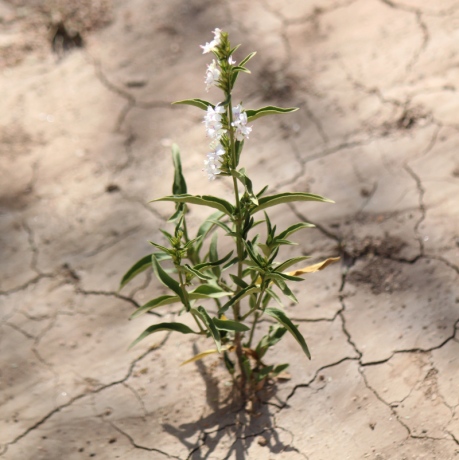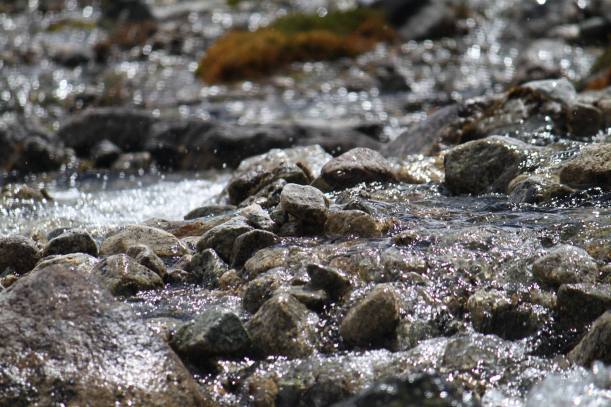
I have a worn index card in the front of my Bible with the words “wait on the Lord” on the front, followed by a list of verses. At some point a few years ago I decided, in the midst of the slow discovery of reading, to start writing down every time I came across these words or concept in Scripture. I don’t know now why I needed the reminder in that season, and I stopped capturing them long before completion, but not before preserving this small remembrance that Scripture calls us, repeatedly, to wait.
In the church year we usually focus on Advent as the waiting season, and of course it is: a waiting for the promise, the birth, the arrival. But this year I have been struck by the remembrance that Lent, also, is about waiting. Advent, and then Christmas as its culmination, is a joyful and expectant waiting, in a sense waiting for the “already.” Then we journey through the few glorious months of Epiphany, reminding each other again and again of how God is present with us, and then we come again to Lent. Lent, slipping in to remind us of the other reality in which we dwell, this waiting of the “not yet,” the waiting of the brokenness for which Christ went to the cross, a brokenness and need that still defines our world and our lives, and all too painfully so.
Waiting, however, is not sedentary. And it always keeps in sight the object. I think this is why I have come to love using the word longing to capture this reality of our existence. It is the longing that the psalmist cries out with in Psalm 130:
my soul waits for the Lord
more than those who watch for the morning –
yes, more than those who watch for the morning.
In the insulation of our present age the full understanding of these words can be lost. I have never been a watchman, striving to remain alert for the safety of the city. But in a different way I have glimpsed what it is like to wait for the morning. It is sitting in the utter darkness of the wilderness, completely dependent on a series of events I have no control over for the bringing of light, warmth, and the freedom to move forward into the day. It is feeling that I can hardly focus, glancing up every five seconds to scan the horizon with desperation for the slightest first signs of pink. It is feeling, in the depth of the morning cold, that even though reason tells me the sun has risen every day of my life, for a split second I am afraid it never will and if so, I will not make it. So I watch for the morning; long for it with the knowledge that in some very real way, my life depends on it. So the writer of Psalm 130 weaves these words together, this watching and waiting and hoping and redemption, because they can only exist together. Because waiting is about the action of hope looking to the promise of redemption.
But waiting is also about the realities of life in a world of brokenness, limitation, and need. Going forward to receive the ashes at an Ash Wednesday service, one of the traditional statements proclaimed over us is to remember that from dust you came and to dust you shall return. Or, as Psalm 103 says it, “As for man, his days are like grass; as a flower of the field, so he flourishes. For the wind passes over it, and it is gone, and its place remembers it no more.” Its place remembers it no more. To wait is to accept this place non-remembrance. To name that I am not the meaning of my own life, that God’s freedom has an eternal scope and is not so narrowly defined as to mean my pursuit of self-defined happiness and fulfillment. It is to choose, as Wendell Berry says, to “plant sequoias. Say that your main crop is the forest that you did not plant; that you will not live to harvest.” It is to say that the limitations of our creatureliness are okay, in fact they are good. Our sin has always been to want to be more than what we are, and so we need Lent. We need to be reminded of our mortality.
Lent is a remembrance of longing. It is choosing to engage in practice what we know to be true in some deep recess: that we are a waiting people. That discipleship is primarily about waiting. Growing, yes, but anyone who has had a garden knows that growth involves a lot of tending, and a lot of waiting. And the practices of tending must come before the promise of fruit.
As one of those Lenten practices then, traditionally, we give things up. Why? To identify with Christ in the wilderness, yes. But also, to practice longing. To embody it. To feel it at some (let’s be honest) relatively easy place of our being, in order to remember that this is in fact the practice of a truth so deep that even touching its edges is greatly tender, and we feel it. And the feeling matters. It touches us at a different place than the thinking alone. And we need this reminder. Not morbidly, but because the recognition of brokenness is actually the first seed of hope.
The reality of our lives on this earth means that our hope must be planted and grow in broken soil, and practices of longing are like the tiller that prepares it. Those who need nothing do not need to wait. Those who are fulfilled do not need to hope. Only sinners need redemption.
And I believe to long in the way the Lord has designed us to is anything but ethereal, mystic, and theoretical. Brokenness drives us to isolation, to hiding behind illusion to cover our vulnerability. If we do not exist at a level of relationship with others where we see and are seen in our insufficiency; where we demonstrate publicly in our failure and our falls how we are still waiting for redemption; we are not driven to lean into the hope of our longing. We do not have to incarnate the love of God and remind each other of truth, which is the great gift of relationship. If we do not feel our lack, we cannot long for the fullness of Christ and we cannot recognize its shadows here and among us.
So my prayer this Lent, for myself and for you, is that in all the tenderness it entails, we will wait. Wait together. Need each other. Embody longing. Speak the truth of freedom. Refuse illusion. Practice.
Remember our need in order to plant seeds of hope.




